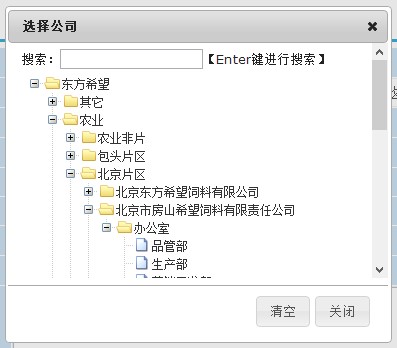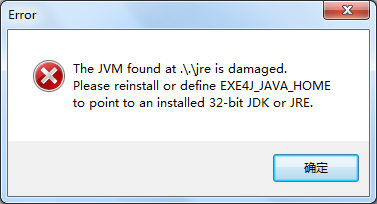Spring的InitializingBean和init-method
Spring在设置完一个bean所有的属性后,会检查bean是否实现了InitializingBean接口,如果实现就调用bean的afterPropertiesSet方法。另外,如果bean是单例的,则afterPropertiesSet方法只会被调用一次;否则每次创建bean时afterPropertiesSet方法都会被重新调用.Spring虽然可以通过InitializingBean完成一个bean初始化后对这个bean的回调,但是这种方式要求bean实现 InitializingBean接口。一但bean实现了InitializingBean接口,那么这个bean的代码就和Spring耦合到一起了。通常情况下不建议直接实现InitializingBean,而是用Spring提供的init-method的功能来执行一个bean 子定义的初始化方法,这可以在一个bean的配置文件中通过init-method声明:
<bean id="testBean" class="TestClass" init-method="initialize"/>
spring要求这个init-method方法是一个无参数的方法。
Spring要求init-method是一个无参数的方法,如果init-method指定的方法中有参数,那么Spring将会抛出java.lang.NoSuchMethodException
init-method指定的方法可以是public、protected以及private的,并且方法也可以是final的。
init-method指定的方法可以是声明为抛出异常的,就像这样:
final protected void init() throws Exception{
System.out.println("init method...");
if(true) throw new Exception("init exception");
}
如果在init-method方法中抛出了异常,那么Spring将中止这个Bean的后续处理,并且抛出一个org.springframework.beans.factory.BeanCreationException异常。
如果一个bean同时实现了这两种方式的初始化配置,则spring会先调用afterPropertiesSet方法,然后通过反射调用init-method,任何一个方法出错都会导致spring创建bean失败.如果afterPropertiesSet方法调用失败,也不会再继续执行init-mehtod方法。
org.springframework.beans.factory.support. AbstractAutowireCapableBeanFactory完成一个Bean初始化方法的调用工作。 AbstractAutowireCapableBeanFactory是XmlBeanFactory的超类,再 AbstractAutowireCapableBeanFactory的invokeInitMethods方法中实现调用一个Bean初始化方法:
org.springframework.beans.factory.support.AbstractAutowireCapableBeanFactory.java:
view plainprint?
//……
//在一个bean的合作者设备完成后,执行一个bean的初始化方法。
protected void invokeInitMethods(String beanName, Object bean, RootBeanDefinition mergedBeanDefinition)
throws Throwable {
//判断bean是否实现了InitializingBean接口
if (bean instanceof InitializingBean) {
if (logger.isDebugEnabled()) {
logger.debug("Invoking afterPropertiesSet() on bean with name '" + beanName + "'");
}
//调用afterPropertiesSet方法
((InitializingBean) bean).afterPropertiesSet();
}
//判断bean是否定义了init-method
if(mergedBeanDefinition!=null&&mergedBeanDefinition.getInitMethodName() != null) {
//调用invokeCustomInitMethod方法来执行init-method定义的方法
invokeCustomInitMethod(beanName, bean, mergedBeanDefinition.getInitMethodName());
}
}
//执行一个bean定义的init-method方法
protected void invokeCustomInitMethod(String beanName, Object bean, String initMethodName)
throws Throwable {
if (logger.isDebugEnabled()) {
logger.debug("Invoking custom init method '" + initMethodName +
"' on bean with name '" + beanName + "'");
}
//使用方法名,反射Method对象
Method initMethod = BeanUtils.findMethod(bean.getClass(), initMethodName, null);
if (initMethod == null) {
throw new NoSuchMethodException(
"Couldn't find an init method named '" + initMethodName + "' on bean with name '" + beanName + "'");
}
//判断方法是否是public
if (!Modifier.isPublic(initMethod.getModifiers())) {
//设置accessible为true,可以访问private方法。
initMethod.setAccessible(true);
}
try {
//反射执行这个方法
initMethod.invoke(bean, (Object[]) null);
}
catch (InvocationTargetException ex) {
throw ex.getTargetException();
}
}
//………..
通过分析上面的源代码我们可以看到,init-method是通过反射执行的,而afterPropertiesSet是直接执行的。所以 afterPropertiesSet的执行效率比init-method要高,不过init-method消除了bean对Spring依赖。在实际使用时我推荐使用init-method。
摘自 执行梦想代码
补充:软件开发 , Java ,




